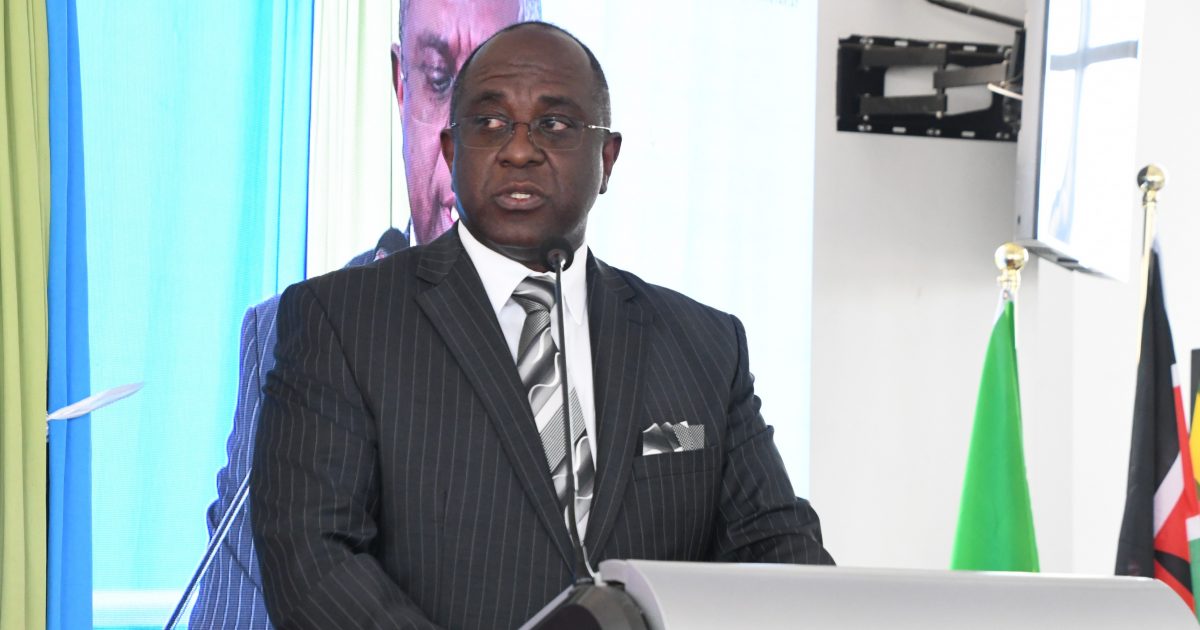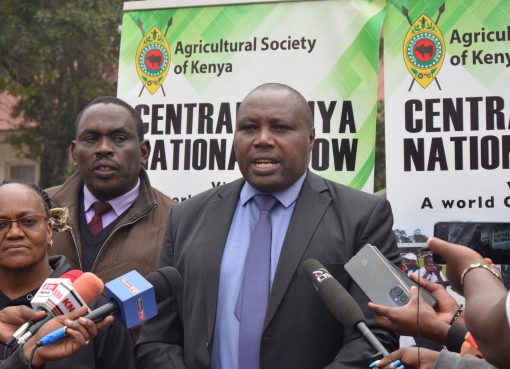County governments have voluntarily agreed to adopt a peer review model similar to the continental level, allowing them to hold each other accountable for governance and development matters, as per Resolution 32 of the 2017 Devolution Conference.

This is in accordance with the historic launch of the National Governance Report (NGR) and the formation of a nine-member Panel of Eminent Persons to oversee Governors’ peer reviews in an event presided over by the State Department for Economic Planning Principal Secretary James Muhati Friday at the Kenya School of Monetary Studies (KSMS) in Nairobi.
The Chief Executive Officer, NEPAD/APRM Kenya, Dr. Samori Okwiya, said the County Peer Review Mechanism will be implemented in all the 47 counties, using the Kenya National Bureau of Statistics’ recommended focus group discussions and key informant interview tools. The process will be subjected to a validation engagement between the esteemed panel members and the county leadership, and thereafter submitted to the CPRM Summit for a peer review conversation.
NEPAD is a pan-African strategic framework for social and economic development, adopted in 2022 by the African Union as a primary mechanism to coordinate the pace and impact of African development.

Okwiya announced that selected eminent persons will join the team to drive transparency, accountability, and progress in counties. Their primary mandate is to ensure integrity, objectivity, and credibility in reviews while remaining people-centred and responsive to citizens’ needs. Up to 11 governors are scheduled for peer review before the end of this year.
“These distinguished group of individuals, each a luminary in their respective fields, joins us on this journey of mutual growth and improvement. The expertise they bring to the table is a testament to their dedication towards the process, which will underscore our commitment to transparency, accountability, and constant progress,” Okwiya said, emphasising the importance of having influential political personalities who can command respect from governors and the general public.
The Panel comprises of; Archbishop (Rtd) Eliud Wabukhala, former Chairperson Ethics and Anti-Corruption Commission, Prof. Olive Mugenda, Chairperson of the Board of Directors at the Kenyatta University Teaching Referral and Research Hospital, Amb. Rukia Ahmed Subow, Former Kenya Ambassador to Iran and Former Chairperson Maendeleo ya Wanawake, Amb. Dr. John Kakonge, President of the Association of Former International Civil Servants and former Kenya ambassador to Geneva, Dr. Josephine Kulea, Founder of Samburu Girls Foundation, Dr. Wanjiru Kamau, Founder, President and CEO of Africa Immigrants and Refugees Foundation, Dr. Hassan Bashir, Executive Director, Agent for Inclusive Insurance Development, Mr. Pete Ondeng, former CEO, NEPAD/APRM Kenya Secretariat and Mr. Salesa Adano Abudo, Commissioner, Teachers Service Commission.

The CEO stated that the National Governance Report (NGR) is a tool for African countries to evaluate their governance by utilising data from focus group discussions and key informant interviews to identify key indicators like rule of law, transparency, peace, human rights, social-economic governance, and elections.
The NGR seeks to identify governance issues requiring special attention, provide credible data for stakeholders by strengthening democracy, accountability, and inclusiveness, and formulate actionable recommendations for improvement in governance, thereby enhancing the overall governance system.
Dr. Okwiya said “the report provides a comprehensive assessment of Kenya’s journey, highlighting achievements, challenges, and the path forward. It provides data-driven insights that can drive policy adjustments, foster collaboration, and instigate positive transformation. The report highlights Kenya’s progress in diverse sectors, underscoring its potential for growth and highlighting areas requiring immediate attention.”
Okwiya further noted that the Kenyan government is now encouraging African states to consider implementing the initiative in their jurisdictions to track development progress.
By Ian Chepkuto





